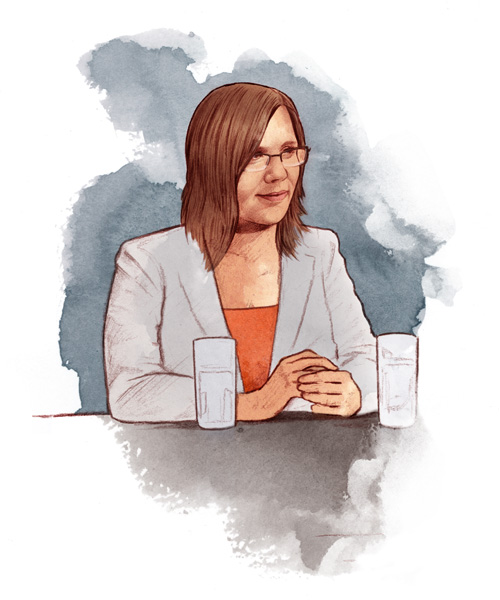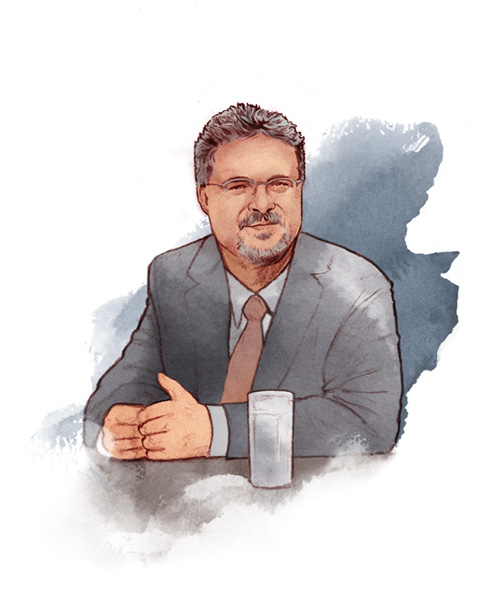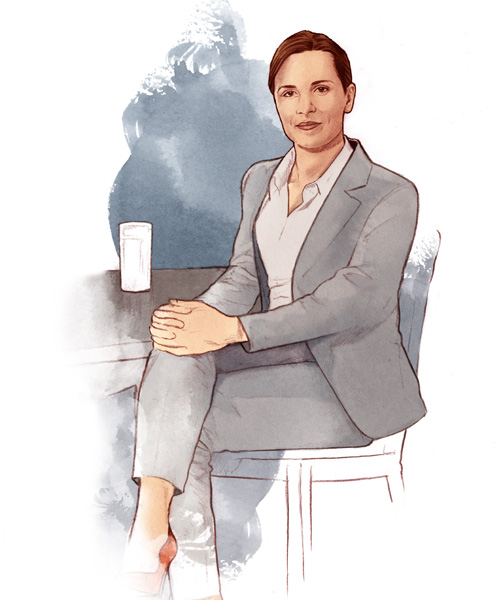Brain trust
Changes in mining have traditionally moved slowly, but if the industry is to find ways to reverse its “accumulated deficit of transformational innovation” it should start with mining graduates. Solid Ground spoke to professors at leading mining educational institutions about their opinions on how new realities are affecting graduates’ education and what everyone can do to positively influence mining’s future.
SOLID GROUND: Is the total number of students entering mining programmes increasing or decreasing, and why?
PETER KNIGHTS: We believe that there are two factors driving the low number of enrolments in mining engineering. The first is concern over the lack of job security in the mining industry. Over the last four years, some 20,000 people associated with the mining and resources industry in Australia have lost their jobs. To be fair, some of these job losses are the result of large resource projects being completed, but there is a conspicuous lack of new projects available to provide employment opportunities. The second factor is the concern over the future of coal, intimately linked with climate-change fears. Nevertheless, the outlook is positive as most growth predictions conclude that there will be a rise in mega-cities in Asia within the next half century, which require the coking coal produced at three-quarters of the coal operations in Queensland.
CATRIN EDELBRO: Indeed. The number of students enrolling varies and is linked to ore prices. High prices on the market are shown in newspapers, on the Web and on TV. In general, this attracts students to our sector.
SG: Traditionally, what type of competencies do mining companies typically seek, and how has that changed over time?
CARLA BOEHL: Employers expect “job-ready leaders.” We work closely with mining companies, and they constantly give us feedback and updates on their needs in the workshops we organize with them.
CE: The larger companies still want the experts and specialists who can be taught by our traditional MSc programmes. However, small and medium enterprises (SMEs) need more entrepreneurial skilled graduates in order to have production from the first day. The younger generation seem to be, or could be, more innovative and entrepreneurial in their way of thinking, and therefore the universities need to have a closer collaboration with the industry and SMEs. The students like and want more of real problems that are complex, and less of well-defined and often non-realistic problems. Students and faculty need to work more cross-disciplinarily.
PK: Mining companies have traditionally sought technically competent graduate mining engineers for planning, scheduling and operational applications. Over time, these skill requirements have expanded to include increasing awareness of socio-environmental issues and an ability to work as part of multi-disciplinary teams. As the industry increasingly embraces automated equipment and remote operations centres, we are seeing a requirement for mining engineers to have greater awareness of control fundamentals as well as data analytics skills.
SG: How can universities help to close competence gaps in graduates, particularly as mining moves more “from the ground” and “into the cloud” – i.e., big data usage?
CB: Universities are developing capabilities, particularly in data and computational thinking, for their current and future students. At Western Australia School of Mines, we focus in particular on big data analytics, simulation, modelling and optimization and visualization.
CE: One of our future visions is “zero entry,” which means no humans in the production area. In the long run, this means that the data collected in the field today needs to be collected in the future by sensors, scanning equipment, photogrammetry, etc. Hence the new generation of engineers need to be able to analyze and evaluate the data in another way compared to today. Still, basic knowledge needs to be taught by the universities, which also need to cooperate closely with industry in order to teach the students how to interpret data.
PK: The University of Queensland is looking at introducing a greater emphasis on systems engineering within the mining engineering degree. The ability to understand and model complex systems is integral to autonomous systems as well as complex multi-disciplinary socio-environmental problems.
SG: How important is the collaboration of academia and the private sector for attracting and developing new talent into mining?
CE: In other sectors, such as mechanical or technical design, it is very common to talk about business models regarding product development. The people in the mines do not yet use that language. The “standard offer” from business and entrepreneurial schools needs to be transferred to a content that is specific for the mining sector.
CB: Public research is a critical area where industry and university need to collaborate in facing and embracing disruption. Even a small increase in our efficiency at converting research into innovation could produce substantial dividends. The evidence indicates that when collaboration works, it leads to great results and successful innovations. It is clear that both industry and universities need to innovate in their approach to collaboration and diversity – not just in attributes such as gender but in diversity of thought, skills and experiences. For universities this means better aligning of research, being more open with findings and more flexible. For industry it means changing the mindset from philanthropy to commercial opportunity, seeking out and investing in long-term research relationships with universities and immersing those researchers in industry.
PK: Collaboration between industry and academia is essential for attracting and developing talent. University can impart theory, but it is not until students see theory put into practice that true understanding results.
SG: There is an ageing baby-boomer generation of miners that is approaching retirement, taking many years of accumulated knowledge and experience with them. Is this a positive or negative factor for the industry?
PK: I would argue that there is a younger generation of mining engineers who were promoted too rapidly to management positions throughout the boom period. This has left a deficit of senior mining engineers with the depth of experience that is ideally required – typically in excess of 10 years of technical experience. These engineers need the ageing baby boomers for advice, and so I see no shortage of consulting opportunities for retiring grey-haired baby boomers.
CB: The positive is obvious because many baby boomers have accumulated experience of doing just the same thing over and over again. So it is better to bring in “fresh air,” new ways of managing and solving problems, and diversity. Yes, it is sad and emotional to see some of the great leaders and entrepreneurs who still have “rubber on their boots” saying goodbye to move on to retirement, but that’s the ageing cycle, and no one has yet invented the magic pill that will keep us alive and well forever.

/https%3A%2F%2Fsolidground.sandvik%2Fwp-content%2Fuploads%2F2017%2F01%2FBrain-trust_1600x750_01.jpg)



/https%3A%2F%2Fsolidground.sandvik%2Fwp-content%2Fuploads%2F2024%2F10%2FCodelco.jpg)
/https%3A%2F%2Fsolidground.sandvik%2Fwp-content%2Fuploads%2F2024%2F05%2F1.jpg)
/https%3A%2F%2Fsolidground.sandvik%2Fwp-content%2Fuploads%2F2023%2F09%2FGarpenberg_1_edit-7979.jpg)
/https%3A%2F%2Fsolidground.sandvik%2Fwp-content%2Fuploads%2F2023%2F08%2F1194_2.jpg)
/https%3A%2F%2Fsolidground.sandvik%2Fwp-content%2Fuploads%2F2023%2F05%2FSandvik_electric-surface-drill-rig-concept_01.jpg)
/https%3A%2F%2Fsolidground.sandvik%2Fwp-content%2Fuploads%2F2023%2F05%2Falpha340_hex_rod_with_bit_black_2022-1.tif)
/https%3A%2F%2Fsolidground.sandvik%2Fwp-content%2Fuploads%2F2023%2F05%2Fth665b_001.jpg)
/https%3A%2F%2Fsolidground.sandvik%2Fwp-content%2Fuploads%2F2023%2F05%2FLH518iB_03437.jpg)
/https%3A%2F%2Fsolidground.sandvik%2Fwp-content%2Fuploads%2F2023%2F05%2FRecycling_Factory_Stills1_2023.jpg)
/https%3A%2F%2Fsolidground.sandvik%2Fwp-content%2Fuploads%2F2023%2F05%2Fmodule-high-res_Frilagd.png)
/https%3A%2F%2Fsolidground.sandvik%2Fwp-content%2Fuploads%2F2023%2F05%2Fimage002-1.png)
/https%3A%2F%2Fsolidground.sandvik%2Fwp-content%2Fuploads%2F2023%2F05%2FGroup-4-2.png)